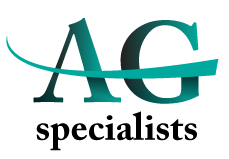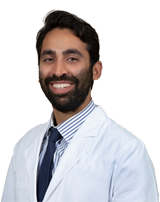Diverticular Disease (Diverticulitis)
I’ve been told that I have diverticular disease. What does that mean?
Diverticular disease is a problem in your intestine. Diverticula are small pouches that bulge outward in the large intestine. Individuals with diverticula are diagnosed with diverticulosis. It is estimated that about 10% of Americans older than age 40 have this condition. If you have diverticulosis, you may not have symptoms, but might notice mild cramps, bloating, and constipation.
If the pockets in the intestines become inflamed or infected, the condition is called diverticulitis. Both diverticulosis and diverticulitis are forms of diverticular disease, but diverticulitis is serious and requires medical treatment.
What are the symptoms of diverticulitis?
Diverticulitis can result in abdominal pain, cramps, bloating, or constipation. The most common sign is tenderness around the left side of the lower abdomen. Fever, nausea, vomiting, chills, cramping, or constipation also can occur. In very serious cases, diverticulitis can lead to bleeding or intestinal tears or blockages.
How is diverticular disease treated?
Diverticulosis is managed by eating a diet that is high in fiber. This may reduce the mild symptoms of diverticulosis, as well as prevent inflammation and infection (diverticulitis). A diet that contains 25 to 30 grams of fiber daily is suggested. Foods vary in fiber type and content, but if you enjoy five or more servings of fruits and vegetables and three or more servings of whole grains each day, you will probably eat enough fiber to manage your diverticulosis. Your body needs to adjust to an increase in dietary fiber. Slowly increase the amount of fiber in your diet. As your body adjusts to your new diet, you can add more fiber. High fiber diets taken on too quickly can cause excesses gas, bloating, or cramping,. It is also important to drink 7-8 glasses of water or caffeine-free liquids daily. A dietitian can be helpful in leading you through this process.
During an acute flare-up when your intestines are inflamed, a diverticulitis diet, which includes clear liquids (link to clear liquid diet) and low-fiber foods(link to low fiber diet), gives your digestive tract time to rest during your treatment. Usually 2-3 days of clear liquids and slowly advancing to a low fiber diet will be enough to rest the bowel. The doctor may also prescribe antibiotic therapy. A diverticulitis diet is not a treatment for diverticulitis.
People who experience worsening signs and symptoms or those who can't keep liquids down may need to be hospitalized for diverticulitis treatment.
My doctor said to avoid nuts and foods with seeds. Why?
It is probably not necessary to avoid nuts and seeds, such as popcorn, sunflower seeds, and sesame seeds. Although for years, doctors told patients with diverticulosis to do so. The thought was that these foods could get lodged in diverticula, causing inflammation and diverticulitis. This does seem logical, but no scientific data exists to support the theory that nuts and seeds cause diverticulitis. In fact, many foods with nuts and seeds are high in fiber; so, avoiding them can keep you from getting the fiber your body needs to prevent diverticular disease. These days, dietitians don’t recommend limiting foods with nuts and seeds, in most cases. However, if you believe that a specific food makes your diverticulosis symptoms worse or causes inflammation, by all means avoid that food and talk to your doctor or dietitian about your symptoms.
References
American Dietetic Association. Nutrition Care Manual. Available to subscribers at: http://www.nutritioncaremanual.org. Accessed February 4, 2008.
MedlinePlus. Diverticulosis and diverticulitis. Available at: http://www.nlm.nih.gov/medlineplus/diverticulosisanddiverticulitis.html. Accessed February 4, 2008.
National Digestive Diseases Information Clearinghouse. Diverticulosis and diverticulosis. Available at: http://digestive.niddk.nih.gov/ddiseases/pubs/diverticulosis. Accessed February 4, 2008.

